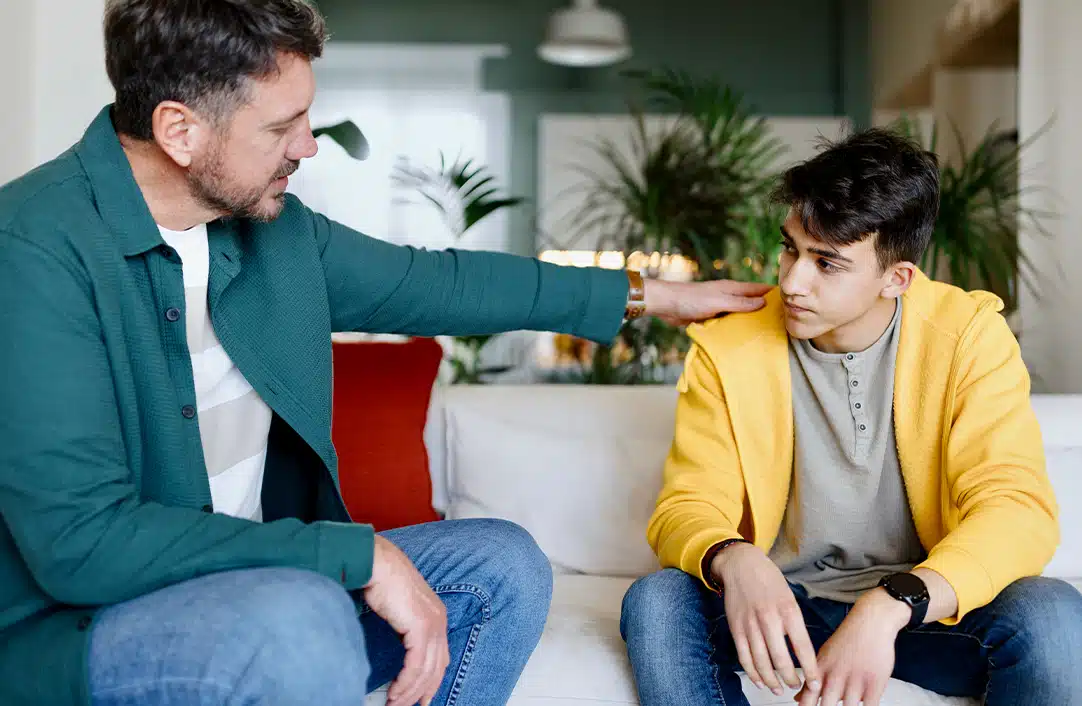Summer is in full swing and you might have a young child who’s eager to go spend time at the neighborhood pool. If you were going to teach your two-year-old how to swim, think of how involved you’d probably be. You’d hold your toddler as you got in the water together and let them get used to their surroundings. Maybe after a few minutes you’d set them down on the side and then have them jump into your arms. At some point, you’d have them practice kicking their legs. You’re probably not jumping out and leaving them there to figure things out on their own.
As a parent, you should exercise this same level of care and involvement when it comes to letting your kids use social media. Sometimes kids who are too young to fully understand social media are thrown into the deep end, and they often end up sinking. Just as you wouldn’t leave your child alone in a swimming pool, you shouldn’t leave your child alone in the vast abyss of Facebook, Instagram, Twitter, Snapchat, etc. Online safety expert Scott Steinberg says, “You absolutely have to be as involved in your child’s digital and online life as you would be in real world activities and interactions.”
Kids have ready access to the internet. In a recent Pew study, 89% of 13- to 17-year-olds surveyed said that they were online either “almost constantly” or “several times a day.” Among American teens, 95% have access to a smartphone. As a parent, you can’t keep your kids away from social media and the internet, but you can do some things to ensure that your kids are safe and healthy in their online interactions. Here are five tips to help.
01
CONSIDER THE RIGHT AGE FOR YOUR CHILD TO GET SOCIAL MEDIA.
Kids are begging for social media accounts at younger and younger ages. You’ve probably heard some version of this argument: “Everyone else has Snapchat. My life will be ruined if I’m the only one left out.” The Children’s Online Privacy Protection Act limits the information that companies can gather about children under the age of 13. As a result, websites generally don’t let children under 13 open accounts. That means that technically you shouldn’t be considering letting your kids have their own social media accounts before that age. Waiting until 13 is one guidepost as you consider when your child is old enough for social media, but the same age isn’t right for everyone. Getting social media depends on the interest and maturity of your individual child, and you know your child better than anyone. Whenever your child starts venturing into social media, be there to help and mentor. You want to start introducing them to the online social world before they create their own accounts. Show them how you navigate your accounts.
02
EXPLAIN THE CONSEQUENCES OF SOCIAL MEDIA ACTIONS.
Kids and teens sometimes don’t understand all of the ramifications of their online actions. Kids’ brains are still developing. They don’t have the impulse control of an adult to stop and think, “Oh, I shouldn’t post this hurtful comment just because I’m mad.” Also, they might not have the emotional resilience to deal with mean comments that someone might post about them. Explain to your child that their online presence should mirror their in-person presence. And remind them that when they post something online, they’re potentially creating a permanent record that everyone can see.
03
DISCUSS HARD TOPICS.
There are some real dangers associated with social media. For example, perpetrators can use technology as a way to groom your child. They can communicate secretly and push boundaries. In fact, 1 in 7 teen internet users have received an unwanted sexual solicitation, and 1 in 4 teenagers and young adults say they’ve sexted (which in the case of teens is technically illegal). Have conversations with your child about grooming patterns, boundaries, and what’s appropriate and inappropriate to post and text.
04
KEEP CHECKING IN.
Don’t just talk about important principles related to social media and then vanish and assume that your child is doing everything right. Monitor what’s going on: read what your child is posting, look at their list of followers to confirm it’s only family and friends, make sure there isn’t inappropriate content in their accounts. Making mistakes is part of growing up, and your child is probably going to do a few things on social media that might be dumb. Be there to talk things through and help them learn from their mistakes. Respond, don’t react. If they feel like you’ll explode or automatically ban them from all technology, they’re probably not going to tell you what’s going on, even if they need help.
05
ACKNOWLEDGE THE GOOD THAT CAN COME FROM SOCIAL MEDIA.
People often talk about social media like it’s bad, but there is a lot of good that can come from it. During teen years, developing social connections is very important to most kids. When used well, social media can be a great way to establish connections. And there are many other productive things teens can do with social media: get behind a cause, communicate with family members who are far away, market a talent, etc. Of course, it’s important to be cautious and careful in any online interaction, but social media can be a useful tool.
One teen said that “social media can make people my age feel less lonely.” There are definitely risks associated with social media, especially when it comes to sexual abuse. But with some guidance from you, social media can develop into an easy and accessible communication tool that allows your child to connect with peers and have fulfilling social interactions.
About the author
Mark Hartvigsen
Online Education and Engagement Director
Recent blogs

Common Symptoms Experienced by Adult Survivors of Child Sexual Abuse

Statute of Limitations on Sexual Abuse


